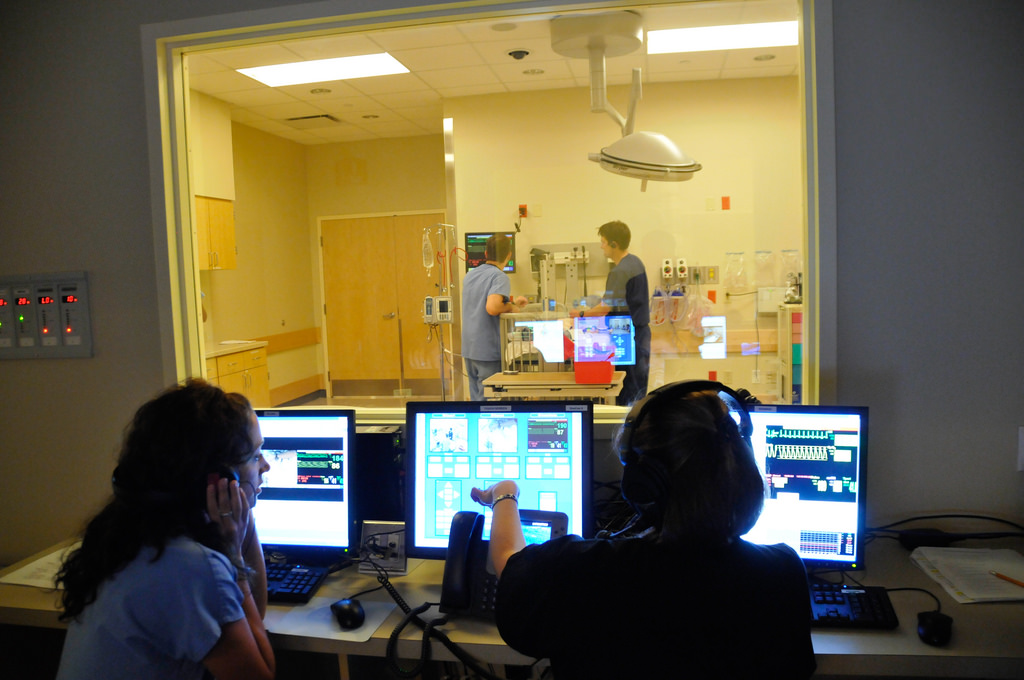 Elisabeth Wynia (2 Posts)
Elisabeth Wynia (2 Posts)Contributing Writer
Case Western Reserve University School of Medicine
Elisabeth is a third year medical student at Case Western Reserve University School of Medicine in Cleveland, Ohio. In 2016, she graduated from Hillsdale College with a Bachelor of Science in biochemistry. She enjoys traveling, learning foreign languages, baking, and intramural sports in her free time. After graduating medical school, Elisabeth would like to pursue a career in emergency medicine.
I’ve been asked by medical students in the classes below me about my third year experiences. Every student’s experience is unique, but listed below are the things I’ve discovered along the way that have helped me survive and even enjoy my third year.
My medical education has been a long journey to this point — a journey filled with many obstacles and detours resulting in moments of self-reflection and personal growth. One of the most important detours on my journey led to me being relocated to Riverside University Health System (RUHS) for a longitudinal care assignment.
“So, how would we test for PBC?” my professor asks from the front of the room.
I know that being a third-year medical student is like being a transplanted kidney. One starts the day in one body. School is composed of lecture halls and written exams. However, the world has shifted by the end of the day, and shockingly, one’s old body is not present.
There are patients who leave lasting impressions on us in one way or another throughout our training. I had never expected an angry, alcoholic patient who left against medical advice to be one of those patients for me.
I am writing to share my concern regarding a series of unusual and troubling cases affecting medical professionals across the country. It manifests as a selective form of hemineglect in otherwise neurologically intact individuals.
The practice of humanism must be at the core of medicine, and this different model, entitled the biopsychosocial (BPS) model, permits and exemplifies this practice.
A patient in the intensive care unit (ICU) suddenly develops respiratory distress and hypoxemia. Her lungs sound clear bilaterally. She is placed on supplemental oxygen via face-mask while a chest angiography is ordered to assess the possibility of a pulmonary embolism.
Nutritional education, as an appendage to conventional medical education, has the power to close the gap by equipping physicians with more well-rounded knowledge to help patients manage the more unmanageable conditions.
I want my residents and attending physicians to be aware of the elements that have so far shaped my medical school experience–a certain racial awareness, if you will–and to be as enthusiastic about teaching me as I am about learning from them.
The best mentor-mentee relationships I am a part of have allowed me to make mistakes while encouraging me and giving me targeted ways of doing better the next time around. They have also consisted of developing realistic goals and expectations. But, above all, they have taken what I bring to the table and helped elevate what is already there, not change it.
Previously, the only health care provider who possessed a doctorate degree was the physician. However, with the rise in educational standards across the United States, many health care professionals now must earn doctorates in their field before even beginning their careers.
 Lydia Boyette, DO, MBA (4 Posts)
Lydia Boyette, DO, MBA (4 Posts)Managing Editor Emeritus (2018-2019)
Campbell University School of Osteopathic Medicine
Lydia Boyette is excited to be a managing editor for in-Training Magazine. In May 2019, she graduated cum laude with a Doctorate of Osteopathic Medicine and summa cum laude with a Master of Business Administration. Lydia matched via the NRMP into anesthesiology residency at the University of Central Florida.
Throughout medical school, Lydia wrote stories about her experiences learning clinical skills and has had her work published by PubMed, KevinMD, and StatPearls, LLC.
Additionally, Lydia has spent a significant amount of time working for community health centers in rural areas. She served as a student physician ambassador for her medical school and previously held the position of editor-in-chief for the local community health clinic's newsletter.
In 2015, she graduated magna cum laude with a Bachelor of Business Administration in healthcare management and a minor in general science from Campbell University in Buies Creek, North Carolina. She also served as an English composition tutor and editor. While completing her undergraduate degree, Lydia was inducted into several honor societies including Phi Kappa Phi, Delta Mu Delta, Pre-Med Allied Health, and Who's Who Among Students Class of 2015.



